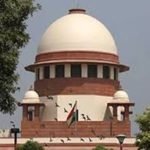September 13, 2025
No Comments
The case originated from an electronic bid (No. 7 of 2023-24) issued by the Superintending Engineer and Project Director, Project Implementation Unit – I, Public Works (Roads) Directorate, Government of West Bengal, on 17.10.2023. The tender was for collecting Road User Fee (RUF) from commercial vehicles for 1095 days. The earnest money deposit was fixed at Rs. 25,00,000.00. Seven bidders participated. The technical bids were evaluated, and four bidders were technically qualified, including Prakash Asphaltings and Toll Highways (India) Limited (appellant) and Mandeepa Enterprises (respondent No. 1).
Financial bids were opened on 08.12.2023. The appellant, Prakash Asphaltings, was found to be the highest bidder (H1) with a quoted amount of Rs. 91,19,00,000.00 for 1095 days. Respondent No. 1, Mandeepa Enterprises, was the lowest bidder (H4) with an offered amount of Rs. 9,72,999.00 per day.
Respondent No. 1 subsequently claimed a typographical error in their financial bid, stating they intended to quote Rs. 106,54,33,905.00 for the entire contract period instead of Rs. 9,72,999.00 per day. They requested the tendering authority to treat the figure of Rs. 9,72,999.00 as a typographical error and read it as Rs. 106,54,33,905.00. The tendering authority rejected this request on 20.12.2023, stating that correction of a financial bid after opening was not possible and would impeach the sanctity of the tender process.
Aggrieved, Respondent No. 1 filed a writ petition (WPA No. 29001 of 2023) before a Single Judge of the High Court, which was dismissed on 03.01.2024, as the Single Judge found no scope for interference. Respondent No. 1 then filed an intra-court appeal (MAT No. 93 of 2024). A Division Bench of the High Court allowed the appeal on 23.02.2024, observing that the error in quoting the figure by respondent No. 1 was inadvertent. The Division Bench directed the tendering authority to evaluate Respondent No. 1’s BOQ at Rs. 106,54,33,905.00 and offer other bidders the opportunity to match this figure. This civil appeal was directed against the Division Bench’s judgment and order.
Law Involved
Clause 4(g) of the Notice Inviting Electronic Bid: This clause specifically states that any change in the template of the Bill of Quantity (BOQ) will not be accepted under any circumstances.
Clause 5B(v) of the Instructions to Bidders: This clause outlines that during bid evaluation, if bidders fail to submit supporting documents or original hard copies within the stipulated timeframe, their proposals will be liable for rejection.
Article 226 of the Constitution of India: Pertains to the High Court’s jurisdiction to issue writs.
Principles of Equity and Natural Justice in Tender Processes: The judgment refers to the importance of these principles in tender and contract awards, but also emphasises that these principles should be kept at a distance when there is a violation of rules.
Judicial Review of Administrative Action: The Court reiterated that judicial review in administrative action, particularly tenders, is limited to preventing arbitrariness, irrationality, bias, and mala fides. Courts should not interfere with a decision unless it is “unlawful” or “unsound”.
Public Interest: Tenders are a cornerstone of governmental procurement processes, aiming for competitiveness, fairness, and transparency in resource allocation. Adherence to rules and conditions and the sanctity of the tender process are paramount.
Reasoning The Supreme Court reasoned that the Division Bench’s interpretation was erroneous for several key reasons:
Sanctity of Tender Process: The Court held that allowing rectification of financial bids after they have been opened would impeach the sanctity and integrity of the entire tender process.
Strict Adherence to Tender Conditions: Clause 4(g) explicitly prohibits any change in the BOQ template under any circumstances. The Division Bench’s broad interpretation of “bona fide mistake” to allow rectification was held to be incorrect and would put “shackles on the functioning of the tendering authority”.
Nature of the Mistake: While Respondent No. 1 claimed an inadvertent mistake, it was effectively a unilateral or systematic computer typographical transmission failure, not one attributable to the tendering authority. Such a mistake, even if unintentional, cannot be a ground to allow post-bid modifications that would undermine the competitive bidding process.
Adverse Consequences to Public Exchequer: The Division Bench’s decision to re-evaluate Respondent No. 1’s bid at a significantly higher amount (Rs. 106,54,33,905.00) meant that the appellant, who was originally the H1 bidder, would be displaced. This would lead to a considerable loss of revenue to the state exchequer (approximately 15 crores) by not accepting the higher bid of the appellant and giving an opportunity to Respondent No. 1 to correct its bid post-opening.
Limited Scope of Judicial Review: The Court reiterated that interference by a writ court in ongoing tender processes is not permissible unless there is a clear violation of principles of natural justice, or the decision is arbitrary or mala fide. The Division Bench’s decision was deemed a clear violation of natural justice principles.
Non-Joinder of Party: The appellant (Prakash Asphaltings), as the highest bidder and a directly affected party, was not made a party respondent in the intra-court appeal before the Division Bench, which was viewed as prejudicial and a violation of natural justice.
Holding The Supreme Court allowed the civil appeal, thereby setting aside and quashing the judgment and order dated 23.02.2024 passed by the Division Bench of the High Court at Calcutta in MAT No. 93 of 2024. The Court sustained the order of the learned Single Judge dismissing the writ petition. Consequently, Prakash Asphaltings and Toll Highways (India) Limited (the appellant), being the H1 bidder, is to be awarded the contract in terms of the notice inviting electronic bid dated 17.10.2023. The Court also ruled that there shall be no order as to costs.
Prakash Asphaltings And Toll Highways (India) Limited Vs Mandeep Enterprises And Others
Supreme Court: 2025 INSC 1108: (DoJ 12-09-2025)
2025 INSC 1108 Download Supreme Court File






